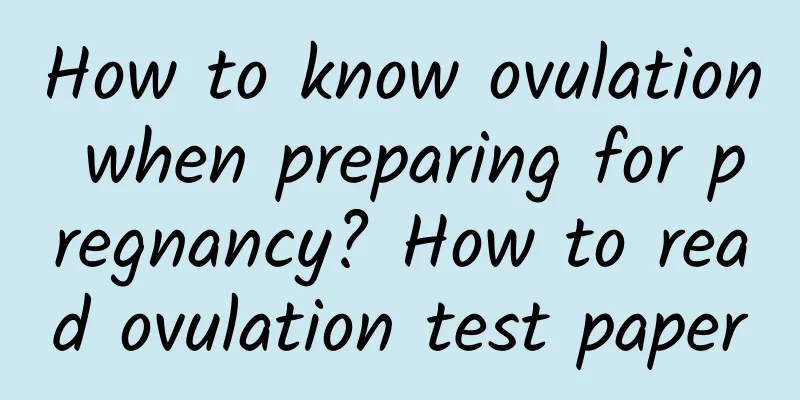How can eating such sweet fruit cause hypoglycemia?

|
Now is the season when lychees are on the market in large quantities. In addition, the price of lychees this year has dropped compared to previous years. The refreshing and sweet iced lychees have undoubtedly become a summer heat-relief artifact for many people. However, if you really intend to imitate the Song Dynasty foodie Su Shi who ate 300 lychees a day, you might suffer from the legendary "lychee disease." What's going on? Lychee actually has its own "lychee disease"? Tempting Lychee What is "litchi disease"? Generally, litchi disease refers to a hypoglycemic reaction caused by eating a large amount of litchi at one time, including symptoms such as dizziness, fatigue, palpitations, pale complexion, and vertigo. Severe patients may even experience cold limbs, low blood pressure, and difficulty breathing. Reports on litchi disease, pictures from the Internet You may ask, lychees are so sweet, wouldn't eating too much lead to high blood sugar? Why do I have symptoms of hypoglycemia? And how come it's so serious? To solve this mystery, we need to take a closer look at the components of lychee and its effects on the human body. In addition to a large amount of water and fructose, lychee pulp also contains a large amount of hypoglycine A and α-methylenecyclopropylglycine, both of which affect the body's gluconeogenesis and have the effect of lowering blood sugar. Therefore, eating a large amount of lychees on an empty stomach will cause a sharp drop in blood sugar. Gluconeogenesis process, image source: wikimedia We know that a certain level of blood sugar is needed to maintain the normal functioning of the human body, and the maintenance of blood sugar is closely related to the conversion of non-sugar substances into sugar (this process is called gluconeogenesis). When this process is affected, the body may experience symptoms of hypoglycemia. In addition, lychee is a "scheming" fruit. The sweetness of lychee fructose confuses the brain, making it think that "blood sugar will definitely rise." Therefore, in order to maintain the balance of blood sugar (glucose) in the body, the secretion of insulin will increase appropriately to reduce the blood sugar concentration, but in fact lychees do not provide that much glucose. If you eat lychees while on an empty stomach (your blood sugar level is low), the impact of increased insulin will be more serious. It will be difficult for the body to maintain blood sugar levels, and various symptoms of hypoglycemia will occur. This is called "lychee disease." What to do if you encounter "litchi disease"? I understand the logic, but lychees are so delicious. What if I can't resist the temptation and fall into the trap of lychee disease? Is there any way to relieve the symptoms? If the symptoms are mild, such as just a little dizziness, fatigue, and sweating, don't worry too much. Lie down and rest, and replenish some glucose (drink some glucose water, or white sugar water will do if you don't have it), and the symptoms of hypoglycemia will soon be relieved. Litchi disease causes mild hypoglycemia, picture from CCTV.com If the symptoms are severe, such as convulsions, collapse, shock, etc., you should go to the hospital as soon as possible to seek professional treatment. Of course, in addition to post-mortem treatment, you should also ask yourself whether it is suitable to eat lychees and how much to eat before eating lychees. For example, children, pregnant women, and diabetic patients should not eat too many lychees. These people have relatively poor blood sugar regulation ability, and eating too many lychees can easily cause hypoglycemia symptoms. Children are not suitable for eating lychees in large quantities. See the watermark for the source of the picture. Although "litchi disease" sounds scary, as long as you master the code of eating lychees, you will have no worries. The secret is actually very simple to explain. Generally speaking, it includes the following points: choose fully ripe and fresh lychees to eat; stick to the principle of moderation; do not eat on an empty stomach; and special groups should "taste only a little". Generally speaking, healthy adults should eat no more than 300 grams of lychees a day, and children should eat no more than 5. A few days ago, there was even a trending search term "Adults should not eat more than 10 lychees at a time", which shows that it is very important to eat in moderation. Secondly, do not eat lychees on an empty stomach. It is best to eat them about half an hour after a meal to prevent a sudden drop in blood sugar. Patients with tonsillitis, constipation, and diabetes should consult a professional doctor before eating lychees. Although pregnant women, the elderly, those recovering from illness, and patients with anemia can eat lychees, they should be careful not to eat too much at one time. In addition, you can also reduce the risk of contracting lychee disease by eating lychees. You can shell and core the lychees, soak them in light salt water, and then eat them. Many places have developed unique ways of eating lychees, such as dipping them in salt or soy sauce, which are said to make them taste better. A wide variety of lychees. Image source: Tencent.com Lychee is also a common dish. Lychee grilled fish, lychee chicken balls, lychee pork, lychee crystal shrimp, etc. are all very delicious dishes. Image of the exploding lychee ball: Elang species calendar I'm going to eat lychees. END Audit Expert Wang Guoyi Postdoctoral fellow in food safety Tadpole Musical Notation original article/reprint please indicate the source Editor/Sirens |
<<: Is it more cost-effective to buy large or small abalone? Why is dried abalone more expensive?
Recommend
My breasts are getting softer, why?
Every woman wants to have a pair of firm breasts....
How to arouse girls' desire
In fact, girls' bodies are more sensitive tha...
What are the symptoms of abnormal menopause?
Menopause is a very uncomfortable stage that ever...
Does Kidney Yang Deficiency Have an Impact on Pregnancy?
Yin deficiency and fire excess is a symptom of ki...
What vegetables and fruits can't be eaten during early pregnancy
In the early stages of pregnancy, the baby is not...
Can I drink ginger soup if I have a cold during confinement?
Can I drink ginger soup if I catch a cold during ...
Where is the vagina of a girl?
Where is a girl's vagina? I believe it is som...
Revealing the three signs that a blind date girl likes you!
Blind dates are a very common phenomenon in life....
Localized effusion in the pelvic rectal fossa
Localized fluid accumulation in the pelvic rectal...
CT examination precautions: a must-read guide for patients
CT examination precautions: a must-read guide for...
What is a cocktail? How to choose a cocktail
Cocktails contain certain nutrients and are gener...
How is vulvar leukoplakia caused?
Women are often troubled by various gynecological...
Asthma triggers and preventive measures
Author: Chief Physician, Peking University Third ...
What should women do if they have swollen lymph nodes under their arms?
When the human body's immunity declines, symp...
Can vaginitis heal itself?
Vaginitis is a gynecological inflammation caused ...









